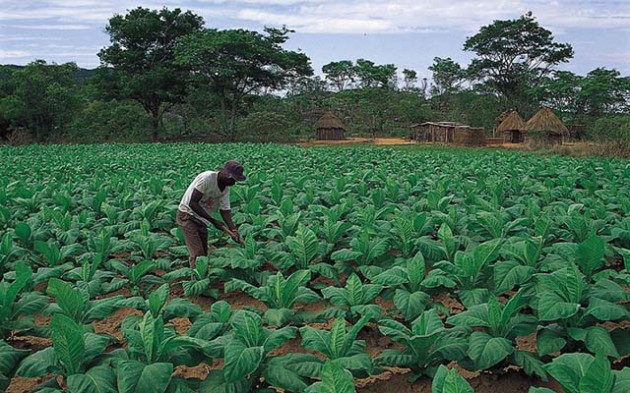Remedying injustice


Newly settled farmers must take personal responsibilityfor the efficient use of resources allocated in the spirit of empowerment of indigenous Zimbabweans
Reason Wafawarova on Monday
Without equal concern for the issues affecting the governed, government is only a tyranny, and author Ronald Dworkin made good this point in his book “Sovereign Virtue.”
Many writers including myself have been writing over the years, lamenting the intransigence of elite bureaucrats and politicians who will not abandon corruption and patronage.
Zanu-PF preaches with eloquence the doctrine of equality of concern, and the party has a fervent drive for justice, but largely in rhetoric. Equality of concern is what made the land reclamation policy an election-winning policy in 2000, 2002 and 2005; and it is also what made indigenisation a landslide winning policy as recent as 2013. Now it appears the housing land policy is going to mobilise the youth vote running into election 2018.
There is no second-guessing that Zanu-PF has mastered the art of articulating popular policies over the years, and the party has in the past successfully advocated for equality of resource opportunities, and has advanced the popular doctrine that every citizen must be given a fair start to make something of their lives. These policies are particularly more attractive in a political environment of harebrained opposition politicians incapable of formulating or articulating policy, let alone interrogating Zanu-PF over its largely people-oriented policies.
It is important for any government worthy the name to show equal concern for all its citizens, not only for those affiliated with the ruling party. This is the only way equality of opportunity can be achieved.
There is no way equality of concern can ever be achieved in an environment where governance tends to assume a partisan approach; and in a normal democracy this must be common knowledge. We are not only in post-independence Zimbabwe, but we live in an era where we claim that our standing in international affairs is defined by our reversal of colonial imbalances and inequalities. Many people now view Zimbabweans as stalwarts against any form of racial injustice, thanks to our politicians at international forums.
Our Government must explain this paradox where we are on one hand correcting colonial imbalances and inequalities, and on the other we are perpetuating disparities in ownership of resources; tolerating blatant cartels enjoying privilege and monopoly over every single benefit that comes with the Government’s economic empowerment policies.
We did correct London’s colonial hangover of its past colonial privileges by reclaiming colonially occupied farmlands in 2000, and we generally agreed as Zimbabweans that the land reclamation policy was remedying an injustice we could no longer tolerate. It is the kind of colonial hangover that makes London shamelessly claim that the Falkland Islands are British territory regardless of them being 4000 miles away from Britain.
Argentinians, just like Zimbabweans, will easily accept the reality of British arrogance over the preservation of some of these injustices, and generally the idea of economic sanctions bedevilling Zimbabwe is an explicit expression of disapproval of the idea of remedying residual colonial injustices.
Economic sanctions have an economic definition and identity, and they are best dealt with economically, not politically.
The emerging wave of politically motivated land disputes between fellow blacks does not speak well of our integrity as a serious society, and reports that gun violence is beginning to happen is a humiliating indictment to our resolve to empower the colonially marginalised black person.
Resource distribution is not a mere political statement to even out with white Zimbabweans, even those who are clear beneficiaries of colonial injustices. Resource redistribution is an economic statement to create wealth for the nation. This is why it does not make sense to offer housing land to a young person with no money to buy their own underwear, or to give farm land to people with no input support to make farming possible.
Housing land for an unemployed youth with no known source of income must come with a financial package to make housing possible on the allocated land.
There has to be personal responsibility to make good use of resources allocated in the spirit of affirmative empowerment of the native Zimbabwean, and sadly that responsibility is not evident.
We cannot have equality of concern in this environment where some politicians openly declare concern only for people affiliated to their own political parties. Democracy simply does not work that way.
Our political parties must attract membership by showing equal concern for all citizens, not by punishing, belittling or side-lining those perceived to be of divergent political views.
Just as we have hailed the majority of Zimbabweans for refusing to be manipulated by the illegally imposed economic sanctions, we must also accept that no form of manipulation is acceptable for the voter — be it vote-buying, intimidation, hate politics, vilification of political opponents, or any form of coercion.
While every single person must take responsibility for their own destiny, we expect the Government to facilitate opportunities for all citizens in a committed and equal manner. Government is not responsible for farming on those farms we repossessed 16 years ago. Individual farmers are. Some people seem to believe that their support for ZANU-PF can just miraculously translate into money-spinning commercial farming. That is unhelpful.
Those workers in the lowveld who are reported to be protesting against the planned redistribution of sugarcane land in that area have sound grounds for their concerns.
We have more than enough unproductive farmers as it is right now, and manufacturing a few hundreds more does not sound like a brilliant idea. There is a good likelihood that some of the people clamouring for this new land might actually be failed farmers already occupying unproductive land elsewhere. One hopes the Ministry giving out offer letters for land is doing so meritoriously, not politically.
Our dream for success as a farming nation is just too silent. Our farming legacy will only be restored by individual farmers, not by our politicians, or by the Government.
We have not done remedy to the colonial injustice of land, not until we learn to feed this nation from our own land; not until our farms create employment for at least 40 percent of our working class. We remedy injustice by creating our own wealth. We cannot create wealth from farmers who believe Government is responsible for giving them free farming inputs year in and year out.
One of the reasons Westerners believe they have a burden, duty and obligation to teach us democratic freedoms is our own lack of identity. We fought for democracy when we were still colonised by the West, and we are responsible for developing and maintaining that democracy the African way.
When we catch the contagious version of democracy from the West we must be prepared to suffer what the Libyans are going through. They allowed a Western democratic invasion of their country, and now they are swimming the oceans heading for what they mistakenly believe to be the home of democracy. To the mainstream West they are just a terrorist nuisance, just like African immigrants are generally viewed as welfare burdens and petty criminals in many Western countries.
ZANU-PF and PF-ZAPU politicians of 1980 were unanimous in claiming that the formation of an egalitarian society was an ultimate goal, that a society of equal concern for all citizens and of equal access to resources and opportunities was the ultimate achievement of the war that had brought us independence.
Understandably, people must merit their wealth, and that comes through commitment and hard work. We cannot have a society where the lazy are regaled with the produce of the industrious, just like we cannot have a society where the unindustrious keep asking for Government subsidies without ever taking responsibility for their own future.
The indigenisation policy must be about equality of concern and not necessarily about equality of share. Indeed, we are here dealing with inequalities bequeathed by a history of colonial injustice and we all have a national duty to remedy that injustice. But the remedy is not and cannot be in equality of share, itself very limited by the mere fact that the cake to be shared can only benefit a few, unless it was cut to inconsequentially small pieces.
The indigenisation policy must be about readjusting to a more equitable (not necessarily equal) disposition of wealth. One can only remedy injustice by potentiating justice. In our case we have to potentiate justice for the formerly marginalised and excluded, and that is done by creating for these people opportunities of equality — by showing each of them equality of concern.
We cannot create justice by converting a selected few of them to replacements of the deposed unjust elites of the colonial era.
Zimbabwe we are one and together we will overcome. It is homeland or death!!
Reason Wafawarova is a political writer based in SYDNEY, Australia.









Comments